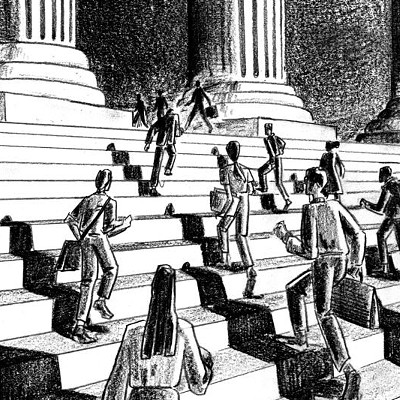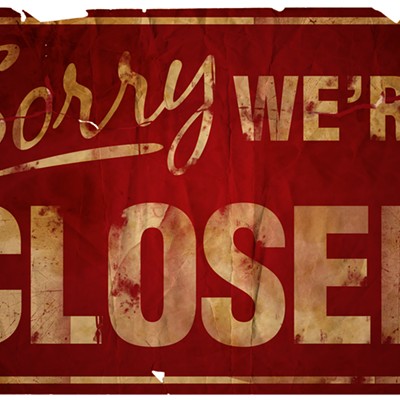Pima County Supervisor Ray Carroll has led the fight in favor of filtering pornographic material. Most of the other county supervisors demur, noting First Amendment concerns and the imperfection of filtering technology.
The concern, of course, is the inevitability of small children walking by the computer bank while adult males are viewing, well, you can imagine ... then again, maybe you can't imagine.
This porn problem is really a symptom of the public-library concept, originally put forth by the great industrialist Andrew Carnegie.
In the early 1900s Carnegie turned his focus from steel and other concerns to philanthropy. He envisioned community facilities that were a combination of free libraries and community meeting places.
He provided startup money while the local government committed to providing the real estate and paying for ongoing expenses. This was the original "public/private partnership." He started more than 3,000 of these facilities across the English-speaking world.
We all find Carnegie's vision cool, and these public libraries have enriched countless communities. The problem is that as government entities, they try to be all things to all people in the community. There is a touch of arrogant paternalism in that original vision that continues today.
Were libraries private businesses that had to respond to the discipline of the markets, they would identify specific information markets, and succeed or fail by how well they served them. If you are funded directly by those you serve, you keep those you serve happy. This is called the discipline of the market.
If your funding does not come directly from those you serve, then you may not see a problem with little kids watching an erotomaniac get all jacked up over an online video.
You are all things to all people.
Imagine little Susie coming home, and her mom asking, "What did you learn at the library today?"
"I learned about trains and highways, and I learned how to spell 'transportation,'" Susie says.
"That's wonderful honey!" says the mom.
Susie adds, "Mommy?"
"Yes, dear?" replies the mom.
"What's an Asian MILF creampie?"
Interestingly, to my knowledge, no one is pushing for an adult section of the library. It might solve the problem, but then the library would admittedly become a purveyor of porn, not simply the homogenized source of all information.
In the end, technology and the private sector will make public libraries irrelevant. Online libraries, computers and electronic readers will bring the information to the citizen: The citizen will no longer have to go to the information.
Jeff Bezos, the founder of Amazon.com, has his own vision. He's sees the decline of the "dead-tree world" of books. Last year, he introduced the Kindle electronic-reading device.
Among other things, the Kindle allows the reader to download books and periodicals directly to the device via the cell-phone network. It is about the size of a trade paperback, and the screen does not glow. It uses "electronic ink" technology that looks like a printed page.
With this move, Bezos is making a down payment on the future of his book business, and keeping it on the cutting edge--good for him! More importantly, he is staying in the private sector, subjecting himself to market discipline--good for us!
It is hard to imagine Jeff Bezos being blasé about mixing together Dick and Jane stories with hard-core pornography. He is accountable to his customers in a very direct, dollars-and-cents way.
Hopefully, Jeff Bezos will stay a businessman and will not become a philanthropist. We will all be better served in the long run.











